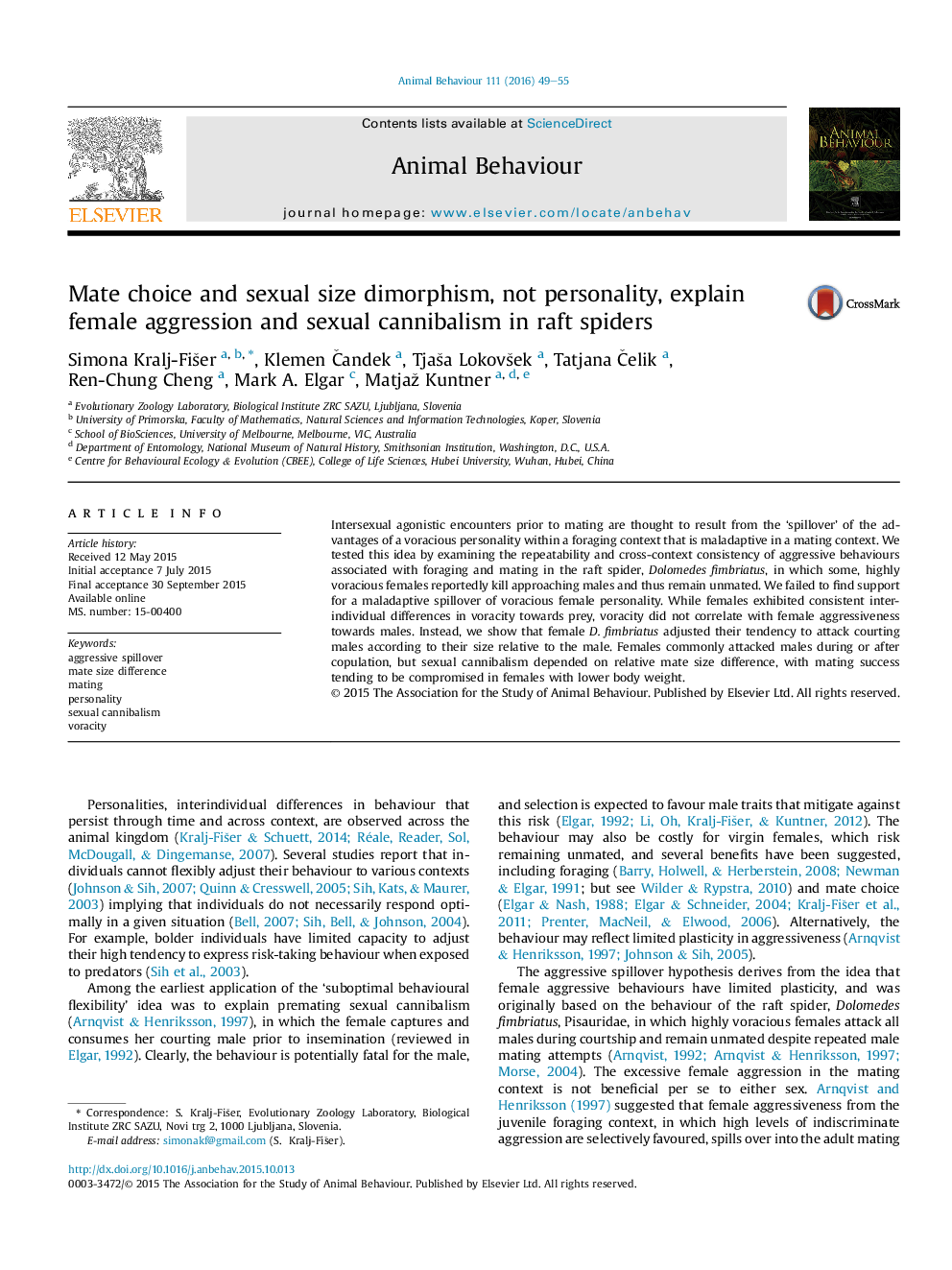| Article ID | Journal | Published Year | Pages | File Type |
|---|---|---|---|---|
| 8489365 | Animal Behaviour | 2016 | 7 Pages |
Abstract
Intersexual agonistic encounters prior to mating are thought to result from the 'spillover' of the advantages of a voracious personality within a foraging context that is maladaptive in a mating context. We tested this idea by examining the repeatability and cross-context consistency of aggressive behaviours associated with foraging and mating in the raft spider, Dolomedes fimbriatus, in which some, highly voracious females reportedly kill approaching males and thus remain unmated. We failed to find support for a maladaptive spillover of voracious female personality. While females exhibited consistent interindividual differences in voracity towards prey, voracity did not correlate with female aggressiveness towards males. Instead, we show that female D. fimbriatus adjusted their tendency to attack courting males according to their size relative to the male. Females commonly attacked males during or after copulation, but sexual cannibalism depended on relative mate size difference, with mating success tending to be compromised in females with lower body weight.
Related Topics
Life Sciences
Agricultural and Biological Sciences
Animal Science and Zoology
Authors
Simona Kralj-FiÅ¡er, Klemen Äandek, TjaÅ¡a LokovÅ¡ek, Tatjana Äelik, Ren-Chung Cheng, Mark A. Elgar, Matjaž Kuntner,
